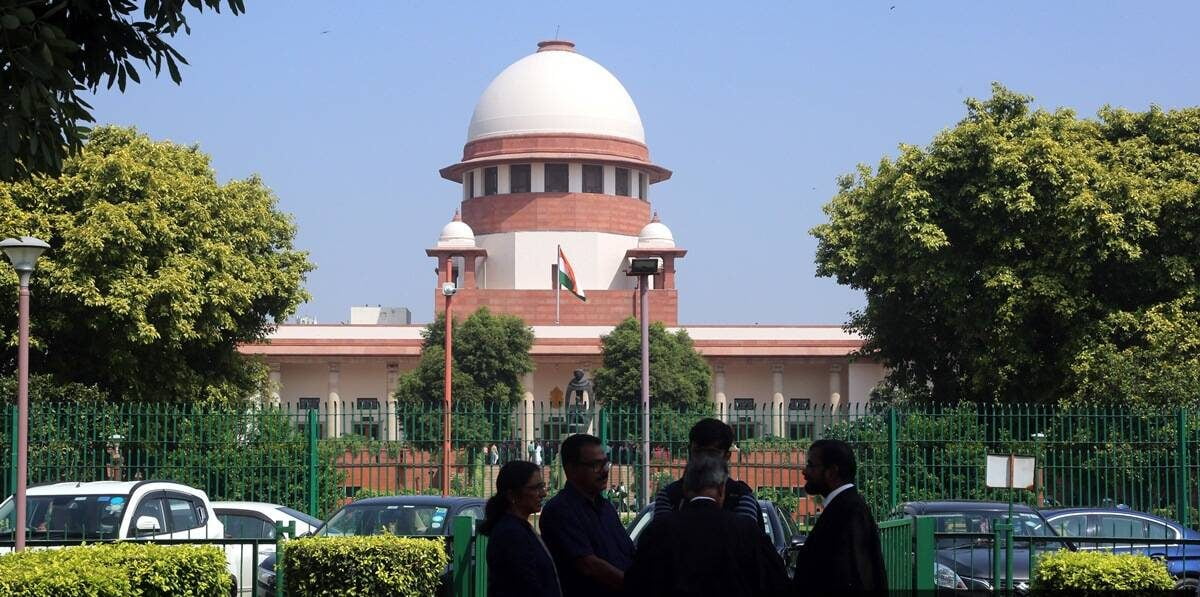The adopted child of a widow whose husband was a government employee is not eligible for a family pension: SC

Tuesday, the Supreme Court ruled that a kid adopted by the widow of a deceased government employee is not eligible for a family pension.
The apex court said that Sections 8 and 12 of the Hindu Adoptions and Maintenance Act (HAMA), 1956 allow a Hindu female who is neither a minor nor of unsound mind to adopt a son or daughter in her own right.
It was stated that the rule required a married Hindu woman not to adopt without her husband’s personal agreement. No such prerequisite applies, however, to a Hindu widow, a Hindu woman who has been divorced, or a Hindu woman whose husband has forsaken the world after marriage or been found incompetent by a court of competent jurisdiction.
Rule 54 (14) (b) of the Central Civil Services (Pension) Rules, 1972 (CCS (Pension) Rules) states that an adopted kid is not eligible for the family pension. A bench of justices KM Joseph and BV Nagarathna affirmed the Bombay High Court’s November 30, 2015 ruling.
The bench stated, “The provision could hardly be as broad as proposed by the appellant’s attorney” (Shri Ram Shridhar Chimurkar). The family pension benefit must be limited to sons and daughters legally adopted by the government employee throughout his or her lifetime. The concept of “family” in the CCS (Pension) Rules is strictly phrased in the context of the claim to “family pension” and in connection to the government employee.” It stated that the word “adoption” in Rule 54(14)(b)(ii) of the CCS (Pension) Rules, in the context of the grant of family pension, must be limited to adoptions made by a government servant during his/her lifetime and must not be extended to adoptions made by the government servant’s surviving spouse after his/her death. The apex court stated, “This is because the purpose of the provision is to support a son until he reaches the age of 25 and an unmarried, widowed, or divorced daughter; similarly to an adopted son or unmarried adopted daughter if a government employee made the adoption during his or her lifetime.” It was added that a case in which a government employee’s child is born after his death must be contrasted with a case in which a government employee’s wife adopts a child after his death.
“The first category of heirs falls under the definition of family, as such a child would be the posthumous offspring of a deceased government employee. The claim of such a posthumous kid is entirely unique from that of a child adopted by the surviving spouse after the death of a government employee. The explanation for this is readily apparent,” the bench stated.
Justice Nagarathna, who made the decision on behalf of the bench, explained that this is due to the fact that the deceased government employee would have had no link with an adopted child who was adopted after his death, as opposed to a posthumous child.
“Therefore, the definition of the term ‘family’ with respect to a government employee includes all those who had a familial relationship with the employee during his lifetime. The document states that any other interpretation would lead to abuse of the clause regarding the grant of a family pension.
The supreme court stated that the current issue is exclusively concerned with the concept of “family” under the CCS (Pension) Rules, and that this definition is a narrow and precise one that cannot be broadened to include all heirs, as given by Hindu law or other personal laws.
“It is axiomatic that in construing a word in a legislation, caution must be exercised in accepting the meaning attributed to that word or concept in another statute,” the bench stated, dismissing the appeal of Chimurkar, the adopted son.
Shridar Chimurkar was a superintendent at the National Sample Survey Organization in Nagpur till 1993, when he left due to reaching retirement age.
He passed away without offspring in 1994, leaving behind his wife, Maya Motghare, who adopted Chimurkar, the appellant in this case, on April 6, 1996. After the death of Shridar Chimurkar, Motghare and the adopted boy resided in a section of a home owned by Prakash Motghare, the adopted son’s biological father.
In April 1998, Motghare married widower Chandra Prakash and began living in New Delhi with him. According to Rule 54 (14) (b) of the CCS (Pension) Rules, children adopted by the widow of a government employee after the death of the government employee are not entitled to family pension.
The case was brought before a judge when Chimurkar petitioned the Central Administrative Tribunal in Mumbai to direct the government to consider him for a family pension.
By its order, the court granted his appeal and requested that he be considered for a family pension.
The Centre then contested the tribunal’s ruling before the Nagpur bench of the Bombay High Court.



